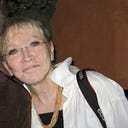Member-only story
Isaac Asimov’s Writing Schedule
Choice and his daily writing changes, as Asimov knew when he decided to write nine projects at any time.
I interviewed Asimov many years ago and wrote an article in Writer’s Digest about it. He was the ultimate one-man band; did all his own 120 wpm typing (5 IBM Selectrics), no agent, no secretary, one draft only, and worked on 9 books at one time. He lived in a hotel room with a window that faced a brick wall. Wrote from 8 AM to 10 PM each day, never accepted luncheon or dinner engagements, and had 1K books scattered around his suite.
“I can’t write about anything that someone else hasn’t written about first,” he told me, and that’s what he did. If he provided anything in terms of advice to other writers, it was to keep several irons in the fire at once.
When you tire of one project or hit a brick wall, pull out another — that’s what he did. He had already published 125 books. One was “The Sensuous Dirty Old Man,” quite a departure from his usual works but that was what made Asimov unique; he wrote about anything that interested him, whether science or not.
What else was he writing? Quickly, he bent over and began opening drawers in the nine-draw desk where he plunked himself down. There was one of the annotations of Shakespeare plays, another on chemistry, and one on science fiction, which he loved and began his writing journey, and he went on.
